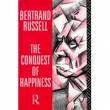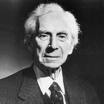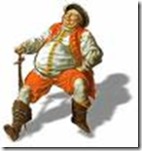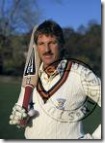This post will be very much a first draft, to be amended, commented on and supplemented in due course. I hope it's useful. Feel free your own ideas in the comments section.
Goals & Setting Goals
Definition
A goal has been defined as "an intended outcome that requires action that satisfies needs". Personally, I'd define a goal more simply as
"a desired outcome that requires action"
We can use the term "wise goal" to indicate
a goal which increases the probability of achieving a truly desirable outcome
Goals and Wise Living
Values (such as "fun", "happiness" and "achievement"), whilst crucial to wise living, can be rather vague and daunting. It's important therefore to link enlightened values with smart goals. For example, just seeing "achievement" as a value may actually make someone feel worse ("I haven't achieved much"). It may even be counter-productive if they feel demotivated. What is need is to set a specific goal related to achievement (e.g. "write an outline of the story I am writing by the end of the week". Goals can also help build virtues and wise habits (e.g. "I will meditate for at least twenty minutes each day").
Goals and Life Coaching
In Life Coaching, setting goals is often considered a critical part of the process. For example, in the TGROW procedure, each session is structure around setting goals (G) for the session's theme (T). SMART goals are routinely recommended in coaching and business.
See Setting Goals Tim LeBon's Guide to smart - and wise - goal-setting
Goals and Psychology
Goal-setting theory Influenced by Aristotle, psychologist Edwin Locke formulated goal-setting theories in the 1960s. According to Locke, goals need to be specific, difficult yet perceived to be attainable. You also need feedback. Goals can increase motivation by increasing effort and persistence and wise decisions. Goals can also stimulate planning, creativity and problem-solving. Researchers have been concerned about a paradox where sometimes setting goals can reduce performance. This can be due to goals being too distant, and by setting outcome goals instead of learning goals when people do not have the right skills.See also Performance Goals - a Paradox
A good academic paper giving an overview of goal-setting theory is freely available - "Building a Practically Useful Theory of Goal Setting and Task Motivation - A 35 Year Odyssey" by Edwin A. Locke and Gary P. Latham.
An article connecting SMART goals with goal-setting theory can be found here.
Virtue
"Virtue (Latin virtus; Greek ἀρετή) is moral excellence of a person. A virtue is a character trait valued as being good. The conceptual opposite of virtue is vice."
The 4 Cardinal virtues of ancient Greece were
Wiki http://en.wikipedia.org/wiki/Virtues
"A Virtue is a trait of character manifested in habitual action that it is good for a person to have" (James Rachels)
Examples of virtues relevant to many people today include:
Assertiveness, Proactivity, Wisdom [emotional, practical, values and existential], Self-awareness, Benevolence, Being Loving, Friendliness, Co-operation (win/win), empathy as well as all the cardinal virtues.
Wisdom
Wisdom is the possession of knowledge about what matters and deep understanding about the universe, the human condition and human nature, combined with good judgement and the disposition to put this knowledge into action
Wisdom has four overlapping dimensions: emotional, practical, values and existential. Practical Wisdom is closely connected with wise decision-making.
See http://www.decision-making.co.uk on wise decision-making and Progress.
Critical Thinking
Critical thinking involves testing whether arguments stand up to critical investigation and seeing whether we have good reason to accept them.
Accordingly there are two approaches to critical thinking: learning, detecting and correcting fallacies, and assessing reasons in terms of their truth-value and strength (relevance is sometimes given as a third criteria).
Thought Experiments
A thought experiment is an experiment carried out not in the laboratory but in our minds. It is the use of a hypothetical scenario to test assumptions and isolate what matters
An example of a thought experiment useful to wise living is "The Ideal Life Exhibition" as described by in Jones, Hayward and Mason in Exploring Ethics. For a description of many thought experiments see "The pig that wanted to be eaten" by Julian Baggini.
Conceptual Analysis
Conceptual analysis is a way of becoming clearer about what we mean. It involves a careful investigation of language and usage and includes searching for definitions and drawing distinctions.
Examples of methods of conceptual analysis are Socrates' elenchus and my method as first described in Wise Therapy
Elenchus
Method of question and answer attributed to Socrates. Typically, the process begins with a request for definition, and then refutations and refinement of each definition. Can end either in a refined, improved definition of the term or, as sometimes occurs in Plato's representations of Socrates, aporia, or confusion. The latter is held by some to be an improvement in that at least the interrogated person is wiser in that they are more aware of their ignorance. Elenchus is a form of conceptual analysis and can also be seen as a type of critical thinking.
Happiness
See Tim LeBon's main web page on happiness
Articles by Tim LeBon on happiness
What is Happiness?
Teaching Happiness
Therapeutic Happiness
Michael Fordyce was an early researcher on interventions to enhance happiness - you can get his free e-book
Two Levels of Moral Thinking and R.M. Hare
Philosophy
R.M. Hare ( 1919-2002 ) - Intuitive and Critical Levels of Thinking
Leading UK moral philosopher of his generation. Hare was originally famous for his books The Language of Morals ( OUP, 1952) and Freedom of Reason (OUP, 1963) where he sounded very Kantian in his stress on the importance of the logical properties of moral words, especially their universalizability and prescriptivity. In his latest book Moral Thinking (OUP,1981) he sounds much more like a utilitarian, and if successful has miraculously combined the best features of Kant and Mill.
Hare thinks that the conflict between Kant and Mill disappears once we realise that there are two levels of moral thinking. At one level, the critical level, we are constrained by rationality to be utilitarian. Hare argues that the only practical way to apply Kant's Categorical Imperative is to imagine ourselves in the position of everyone affected and then decide what on balance we would prefer - which leads to utilitarianism. However Hare argues that it would be disastrous if we tried to do act-utilitarian calculations all the time, for a number of reasons. We are short of time , we lack information and we make special exceptions for ourselves. Given our limitations, we shall not achieve the best outcome by doing a utilitarian calculation each time. Instead, we should cultivate in ourselves a set of principles which lead to the best outcome. These principles will become second nature to us - they are our moral intuitions. At the intuitive level, we behave much like Kantians - sticking to principles and rules whatever the consequences, and only departing from doing our duty with the greatest reluctance and guilt. Critical thinking - utilitarianism -should be used only to select the best set of principles for use in intuitive thinking and to resolve conflicts between principles.
Wise Living
Hare's theories can be extremely useful in constructing a theory of wise living. We need to use critical thinking to construct wise principles and virtues which we can then become second nature - we should teach these to our children and, if we have been brought up differently, we will to habituate ourselves in them. And we need to use critical thinking when principles or virtues conflict in difficult situations. This is rather like practical wisdom.
See also
http://www.victorianweb.org/philosophy/mill/ten/ch2g.html
http://en.wikipedia.org/wiki/Two-level_utilitarianism
On RM Hare http://www.utilitarian.net/hare/about/2004----.pdf
Encyclopedia Britannica article on consequentialism
Good summary of Hare's position
A philosophical self-portrait
Tanner Lecture on Human Values by RM Hare
Values
"In lay definitions, values emerge as ideals or morals that are very important to people and provide guidance and meaning in life." (http://hebb.uoregon.edu/04-01tech.pdf)
"A value is simply a preference for some thing or some process. Values are expressed through behaviours and words." (http://www.values-exchange.com/faq/)
"A principle, standard, or quality considered worthwhile or desirable"
Something worth striving for & considered good - either in itself (Intrinsic) or for something it leads to (instrumental).
Virtues are one source of value, in that they are character traits that are considered important (Virtues can in addition be instrumental to other sources of value.
Viktor Frankl identifies three dimensions of value: attitudinal (corresponding roughly to virtues), creations (roughly differences we make to the world) and experiential (which includes but is not limited to enjoyment and pleasure).
Values can either be subjective or objective. In Wise Therapy I describe RSVP, a procedure to help lead one to more enlightened values. In education, values clarification has been developed to help children become more aware of and develop their values.
There are obvious connections also between values and happiness, well-being and the good life.
See also
the values-based life http://self-awareness.suite101.com/article.cfm/the_values_based_life
the power of personal values http://www.gurusoftware.com/Gurunet/Personal/Topics/Values.htm
Steve Pavlina on living your values, parts 1 and 2.
Richard Robinson An Atheist's Values
Meaning of Life
The good life
Well-being
Theories of well-being include hedonism, the informed preference satisfaction theory, and objective list theories.
Ethics
Utilitarianism
Lectures on utilitarianism
Philosophical Counselling/ Philosophical Counseling
Philosophical Life-Coaching
Psychotherapy and Counselling
Life Coaching
Means and Ends
Love
Friendship
Compassion
Existentialism
Hedonism
Eudaimonia
Stoicism
Virtue Ethics
Deontology/Principle-Based Ethics
Flourishing
Human Nature
See L. Stevenson & Habermans 10 Theories of Human Nature
Practical Philosophy
Practical Philosophy is a discipline that uses philosophical insights and methods to explore how people can live more wisely. Exploring ancient philosophy and more recent academic philosophy it aims to help us understand and pursue the good life, wisdom and meaning in life.
Labels: practical philosophy, wisdom, wise living










